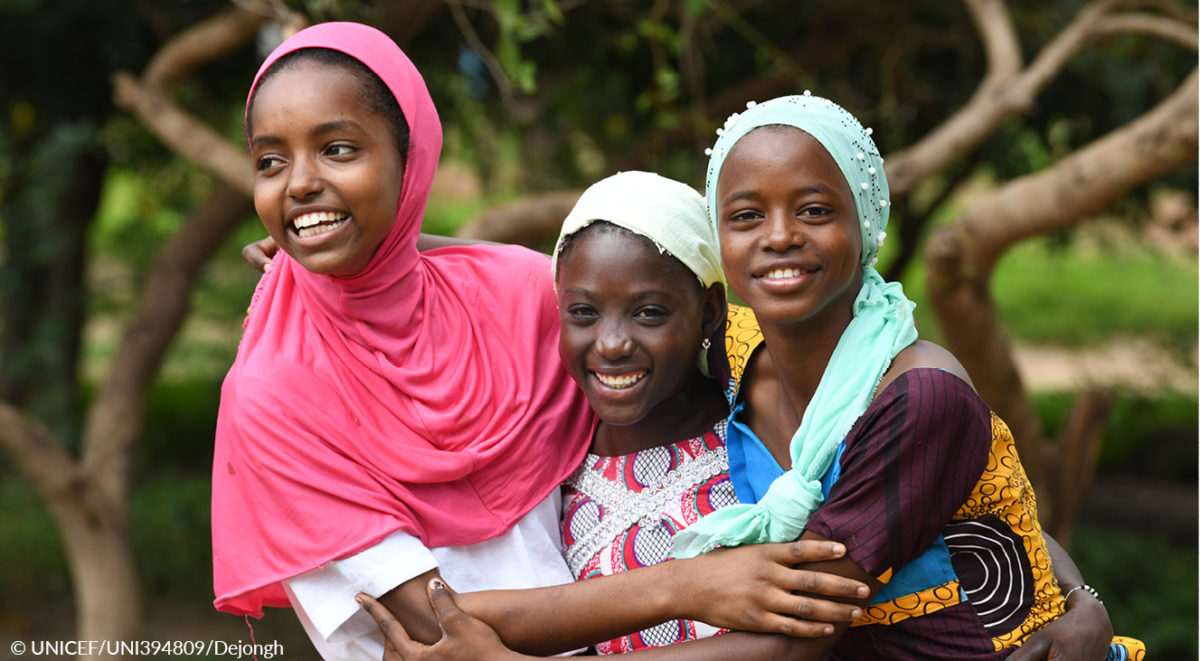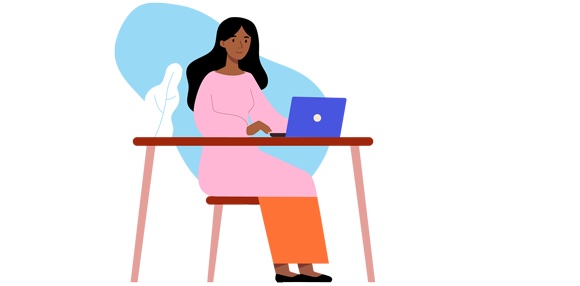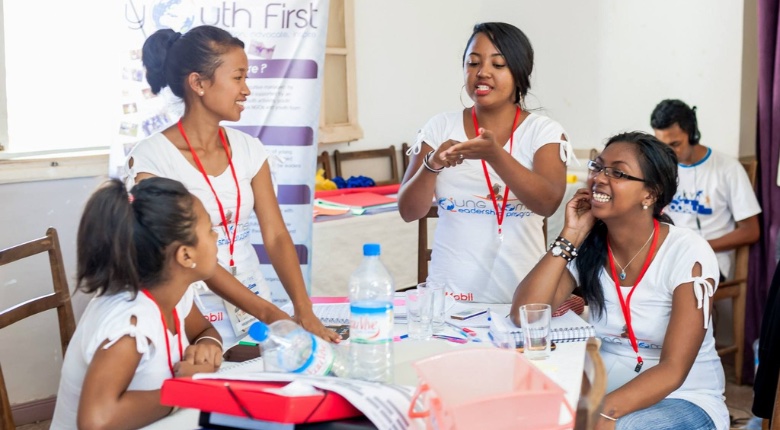
Photo: UNICEF
Stop child marriage
Globally, child marriage is recognized as a harmful practice and a violation of human rights. Despite laws against child marriage, it is still common throughout the world. 21 percent of all girls in the world have been married before the age of 18, and every year an additional 12 million girls are at risk of becoming so.
Progress is being made and in the last decade, approximately 25 million child marriages have been avoided. But due to covid-19, an additional 10 million girls are at risk of being married off before 2030. Now research also shows that a tenfold increase in conflict-related deaths correlates with a 7 percent increase in child marriage. A 10 percent change in precipitation due to climate change is associated with a 1 percent increase in child marriage.
Since 2014, UNICEF and UNFPA have been running a long-term project that will last until 2030 and includes the following twelve countries that account for almost half of the world's 650 million child marriages: Bangladesh, Burkina Faso, Ethiopia, Ghana, India, Mozambique, Nepal, Niger, Sierra Leone, Uganda, Yemen and Zambia.
How does Zonta help?
From 2018-2022, Zonta contributed US$3.5 million to the UNFPA-UNICEF Global Program to End Child Marriage. Zonta was the first private donor to this global program. In 2022-2024, Zonta contributed $1.2 million to support Phase II of the project. 2024 marks the start of Phase III of the global program and over the next two years, Zonta International has committed to support the project with an additional US$1.5 million.
In phase I, almost 8 million teenage girls received life skills training and school support, 39 million individuals received knowledge about behavior changes and in 26,000 schools girls' education was strengthened. Phase II of the global program brought with it increased political support to be able to make healthy and safe decisions, create gender-sensitive rules and policies, and increase investments in support of both unmarried and married teenage girls. Over 6.3 million adolescent girls received education under safe conditions in communities and in schools.
Zonta International's continued support to the global program will focus on strengthening the capacity of governments and ensuring their work with evidence-based evidence and data to sustain the program in the long term. These positive changes have great potential to change the lives of millions of girls and families around the world, helping girls enjoy their childhood and achieve a brighter future.
Target Phase III – 2024-2026
Starting in 2024, long-term goals must be tackled so that more teenage girls can live healthier, become more independent and have a safer life. They should also be able to make their own life choices: decide on education, choose a profession and choose who they want to spend time with, marry and have children with.
Specifically, the project shall:
- Make teenage girls' voices heard and increase their agency by:
- Build knowledge and develop skills.
- Promoting gender equality in adolescent girls' families and communities.
- Increase resources and opportunities for adolescent girls and their families by:
- Strengthen the systems for education, health and child protection.
- Attack the problem of poverty as a cause of child marriage.
- Improve legal and policy measures to prevent child marriage and support adolescent girls who are married, divorced or widowed by:
- Help governments strengthen their plans to end child marriage.
- Build the capacity of governments to make fact-based decisions and implement programs based on what reality looks like.
3 principles
- Ensure a human rights-based approach, recognizing child marriage as a violation of human rights and exploiting opportunities to promote gender equality and youth rights.
- Avoiding exclusion by addressing root causes that perpetuate structural injustices and intentionally deepening the inclusion of marginalized populations.
- Promote changes that address the root causes of gender inequality and discrimination.
The global program will adapt to and respond to the ever-changing circumstances and challenges affecting adolescent girls, child marriage, teenage pregnancy and gender equality. This may include moving efforts to communities affected by environmental crises or armed conflicts or using digital technology to reach populations in areas that have become inaccessible due to, for example, natural disasters.
More about the project
A detailed project description of the collaboration between Zonta International, UNICEF USA and UNFPA is available here.
Download Zonta International's project document "The Impact of your support" (PDF, 192 kB) to learn how your gift is transformed into long-term efforts to stop child marriage.
Here you can see the film that UNICEF and UNFPA presented before Zonta's decision on the project in the summer of 2020 (approx. 14 min).

